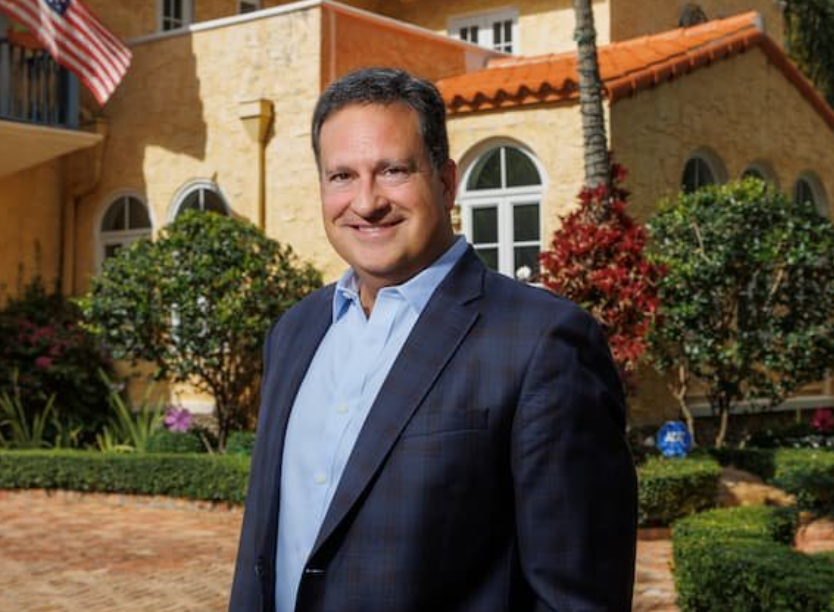It took him a little longer than he’d have preferred, but persistence paid off for Richard Lara on Tuesday as he won a runoff for the Coral Gables Commission.
With all 16 precincts reporting on Election Day, all early votes tallied and mail-in ballots partially counted, Lara had 55.4% of the vote to defeat fellow lawyer Tom Wells for a four-year term in the five-member panel’s Group 3 seat.
He’ll replace ex-Commissioner Kirk Menendez, who lost a bid for Mayor earlier this month.
Lara’s win is also a win for the city’s three-term Mayor, Vince Lago, who has frequently butted heads with two of the Commission’s other members.
For the past two years, Menendez held a swing vote on the dais and often sided with Commissioners Melissa Castro and Ariel Fernandez against the Lago and Vice Mayor Rhonda Anderson on several pivotal decisions.
That swing vote now falls to Lara, whom Lago endorsed and supported with campaign funding.
Florida Politics contacted Lara and Wells for comment but did not immediately receive a response.
Lara and Wells were forced into a runoff following the city’s General Election on April 8, when neither candidate received a large enough share of the vote — more than 50% — to win outright.
Lara took the biggest chunk of the vote then (47.3%), while Wells received 39.2%. The remaining ballots cast went to third-place candidate Claudia Miro, a veteran government and political professional who endorsed Lara as “the right person” for the job a week later.
She cited Lara’s criticism of big pay raises Castro, Fernandez and Menendez approved for themselves against Lago and Anderson’s objections and the trio’s vote against having an independent Inspector General as key to securing her endorsement.
Lara, the Executive Vice President and General Counsel for the Spanish Broadcasting System, also ran with support from Miami’s Community News.
Wells, meanwhile, carried an endorsement from Gables Neighbors United, which backed Castro and Fernandez in 2023, and the Miami Herald, which cited Wells’ deeper community involvements and past work as a CPA as factoring into the nod.
This year’s election came amid mounting concerns about construction projects in Coral Gables and tensions at City Hall, where a divided Commission has clashed over myriad issues since 2023.
Accordingly, both Lara and Wells listed a lack of civility in government and overdevelopment as top concerns.
Both were active in the Coral Gables community before seeking elected office, albeit to varying degrees. Lara, 56, served on several Florida Bar committees and says he “contributed” to the Coral Gables Anti-Crime Committee.
He told Coral Gables Magazine that, as a City Commissioner, he hoped to bring “transparency, integrity, accountability, and professionalism” while working to bring more consensus to City Hall. He also promised to cut taxes “while ensuring world-class city services” and to ensure “taxpayer dollars are invested into the community or given back to residents — NOT used by politicians to give themselves pay raises.”
Meanwhile Wells, 62, is the current Vice Chair of the Coral Gables Charter Review Committee. He said the conflicts at City Hall inspired him to run.
He promised, if elected, to streamline government meetings and expand residential amenities, including the construction of permanent pickleball courts at the Biltmore Tennis Center. He also opposed a proposed 2% tax reduction that “would have cut the (city) budget by $2.65 million and been a windfall to property owners who do not reside in Coral Gables but only … a very small benefit to residents.”
Lara carried a far larger war chest into Election Day. Through April 17, he reported amassing close to $272,000. Lago donated to him, as did Lago’s brother Carlos and former Mayor Raúl Valdés-Fauli, whom Lago served under as Vice Mayor. So did former Commissioners Frank Quesada and Wayne Withers and Coral Gables-based developer Armando Codina, among others.
Wells took no outside dollars. He reported raising $1,000, all from his law firm, and close to $18,500 worth of in-kind spending — also overwhelmingly by him — on campaign costs.
Lara is a registered Republican. Wells is a Democrat. Coral Gables’ elections are technically nonpartisan.
Post Views: 0

 Politics8 years ago
Politics8 years ago
 Entertainment8 years ago
Entertainment8 years ago
 Entertainment8 years ago
Entertainment8 years ago
 Entertainment8 years ago
Entertainment8 years ago
 Tech8 years ago
Tech8 years ago
 Tech8 years ago
Tech8 years ago
 Tech8 years ago
Tech8 years ago
 Politics8 years ago
Politics8 years ago










